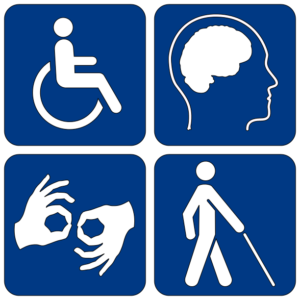 We’re going to diverge from recent headlines and instead discuss developments with the Americans with Disabilities Act (ADA). As originally drafted, the ADA defined a “disability” as a physical or mental impairment that “substantially limits one or more major life activities.” Dissatisfied with the Court’s narrow interpretation of this definition over the years, Congress amended the ADA in 2008 to expand what constitutes a “disability.” When ADA accommodation issues arise in the workplace, the focus is to be on making a reasonable accommodation, not a debate over whether someone’s condition legally constitutes a “disability.”
We’re going to diverge from recent headlines and instead discuss developments with the Americans with Disabilities Act (ADA). As originally drafted, the ADA defined a “disability” as a physical or mental impairment that “substantially limits one or more major life activities.” Dissatisfied with the Court’s narrow interpretation of this definition over the years, Congress amended the ADA in 2008 to expand what constitutes a “disability.” When ADA accommodation issues arise in the workplace, the focus is to be on making a reasonable accommodation, not a debate over whether someone’s condition legally constitutes a “disability.”
The practical result since 2008 is that almost every physical or mental impairment is considered a disability under the “ADA.” However, two recent appellate court decisions remind us that there are limits, and that not every physical or mental impairment constitutes a “disability” that requires a reasonable accommodation.
And those conditions are…
The 2nd Circuit Court of Appeals affirmed that an employee’s migraines did not qualify as a disability under the ADA. In Woolf v. Strada, the plaintiff, Woolf, claimed that his work environment was the “primary trigger” for his migraines. He supported his claim with documentation from a treating neurologist. Woolf requested a transfer to different supervisors/locations because of the migraines. The employer denied the requests, Woolf’s work performance declined, and he was eventually fired.
Woolf then sued under the ADA and state law alleging that his employer did not accommodate his disability. The Court ruled in the employer’s, holding that Woolf’s migraines were not a “disability” because they only occurred during specific work circumstances and did not extend into “major life activities.” The Court stated, “employees who are precluded only from doing their specific job, or from working under a specific supervisor, do not have a ‘disability.’”
Obesity does not necessarily count as a disability according to the 5th Circuit Court of Appeals. In Lumar v. Monsanto Company, the employee alleged that his employer created a hostile work environment due to his obesity.
In similar cases, courts in other jurisdictions have required plaintiffs to show that their obesity was due to an underlying physiological disorder in order to be considered a disability. However, the 5th Circuit Court reasoned that even if Lumar’s obesity was due to a physiological impairment, it still did not rise to the level of a disability. Similar to the 2nd Circuit’s decision in Woolf , the court held that the employee failed to show his obesity limited “major life activities,” and therefore could not be considered a disability covered by the ADA.
StraightforWARD Legal Advice:
The ADA Amendments Act of 2008 made it clear that the employer’s focus should be on making reasonable accommodations for a disability, as opposed to debating whether an employee’s condition legally constitute a “disability.” However, as these two opinions remind us, there are still limits regarding what does, and does not, qualify as a “disability” under the law. Where does the line get drawn? Typically on a case-by-case basis.
If you have any questions about how the ADA defines “disability” and the effects that may have on your business, please contact attorney Christopher Curci at 215.647.6603 or ccurci@thewardlaw.com.
